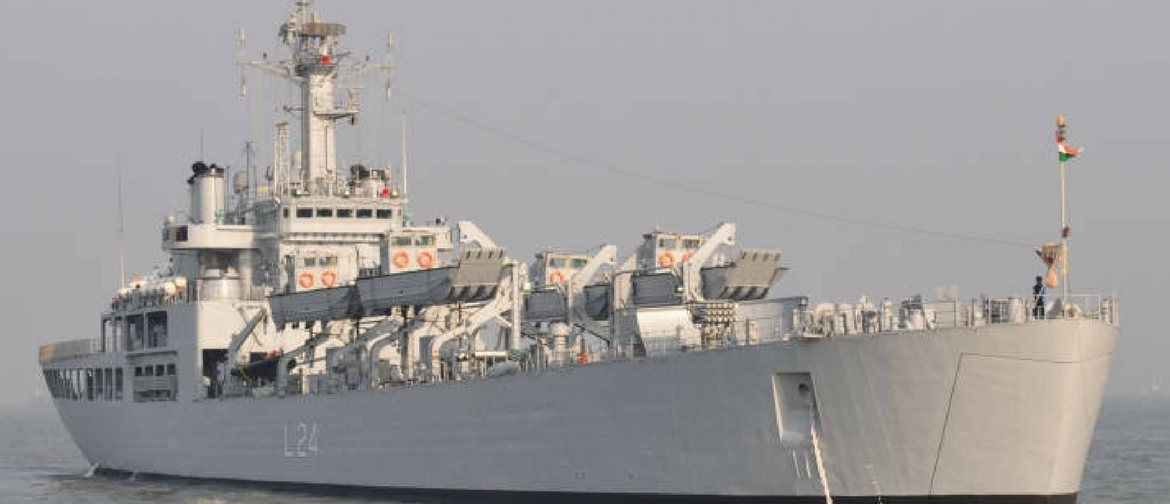by Madhur Sharma
2 July 2018
Behind The Spikes In Islamic Terror During Ramzan
Managing the turbulence in India-US relations
 This is a tricky time for the India-US strategic partnership. On Tuesday, a senior state department official in the US asked all countries, including India, to reduce oil imports from Iran to zero by 4 November. If India fails to do this, its companies will face the same sanctions as any other violator of this American diktat. On Wednesday, the US ambassador to the UN, Nikki Haley, conveyed essentially the same message to Indian officials in New Delhi. This comes against the backdrop of more potential friction building up between the two countries. India is in the process of purchasing S400 surface-to-air missile systems from Russia—a decision that could mean more sanctions for New Delhi, thanks to a US law called “Countering America’s Adversaries Through Sanctions Act” (CAATSA).
This is a tricky time for the India-US strategic partnership. On Tuesday, a senior state department official in the US asked all countries, including India, to reduce oil imports from Iran to zero by 4 November. If India fails to do this, its companies will face the same sanctions as any other violator of this American diktat. On Wednesday, the US ambassador to the UN, Nikki Haley, conveyed essentially the same message to Indian officials in New Delhi. This comes against the backdrop of more potential friction building up between the two countries. India is in the process of purchasing S400 surface-to-air missile systems from Russia—a decision that could mean more sanctions for New Delhi, thanks to a US law called “Countering America’s Adversaries Through Sanctions Act” (CAATSA).Will Trump free these 52 Indians?
Indian monetary policy in the time of inflation targeting and demonetisation
Rakesh Mohan and Partha Ray
This paper provides a narrative of Indian monetary policy since the North Atlantic Financial Crisis (NAFC) in the mid-2008 till the current period. The period 2009-13 was dominated by the joint monetary and fiscal stimuli of the Indian authorities prompted by the NAFC. These, along with some structural shocks and a hands-off attitude in forex market intervention, could have had their role in rising inflation and external account instability (leading up to the taper tantrum episode).
Pakistani Intelligence Trying to Silence Critics at Home and Overseas
In the Pakistani capital a couple returned from vacation last week to find their home had been broken into and the only things taken were their two PCs and some travel documents. The couple suspected the ISI (military intelligence) because the two of them had been active online criticizing the military for the continued violence against India and the Pakistani military supporting Islamic terrorist groups inside Pakistan. This burglary is one of the milder forms of ISI media intimidation. Another Pakistani online critic of the military, who lives in the Netherlands, reports that the ISI have threatened his parents, who still live in Pakistan, with kidnapping and torture if their son does not shut up. The parents sought out the police and courts for protection but received no help. This online critic and his parents continue to defy the ISI. This sort of thing explains why a recent survey found that 88 percent of Pakistani journalists admitted that they “self-censor” to avoid problems with the military (which now prefers to be referred to as “the Institution”.)
False Dawn in Afghanistan?
BY MICHAEL KUGELMAN
 The Afghan government and the Taliban declared separate brief cease-fires to mark the Eid al-Fitr holiday. Over a remarkable three-day period, smiling soldiers, civilians, and Taliban fighters mingled together in the cities, including the capital Kabul, and shared hugs and sweets. Though the Taliban leadership declined Kabul’s request to extend the cease-fire, new truces have reportedly been struck between local officials and insurgents in parts of three different provinces.
The Afghan government and the Taliban declared separate brief cease-fires to mark the Eid al-Fitr holiday. Over a remarkable three-day period, smiling soldiers, civilians, and Taliban fighters mingled together in the cities, including the capital Kabul, and shared hugs and sweets. Though the Taliban leadership declined Kabul’s request to extend the cease-fire, new truces have reportedly been struck between local officials and insurgents in parts of three different provinces.Should Pakistan be partitioned like Yugoslavia?
By by Lawrence Sellin, Phd.
After World War II, Yugoslavia was organized as a federation of six republics, with borders drawn along ethnic and historical lines: Bosnia and Herzegovina, Croatia, Macedonia, Montenegro, Serbia and Slovenia with the two autonomous Serbian provinces of Vojvodina and Kosovo. The Yugoslav federation worked successfully largely due to the strong leadership of president-for-life Josip Broz Tito, but after his death in 1980, a weakened central government could not cope with the growing ethnic and nationalist tensions. Likewise, Pakistan is not so much a country, but an artificial political entity created by the British during the partition of India. It is founded on the ideology of Islam and is primarily composed of five ethnic groups that never coexisted – the Bengalis, Punjabis, Pashtuns, Sindhis and Baloch.
Myanmar’s Brutal Military Is Convicting Its Own Soldiers of Atrocities
BY JOSHUA CARROLL
 On a bright afternoon this January, a group of Kachin villagers in Myanmar’s mountainous north perched on plastic chairs at a courtroom inside a military compound. Standing a few feet away were six soldiers, who were convicted of kidnapping, torturing, and murdering three of the villagers’ relatives near a camp for displaced people in war-torn Kachin state months earlier. A panel of uniform-clad judges read closing statements and handed down the sentences: 10 years with hard labor for each man.
On a bright afternoon this January, a group of Kachin villagers in Myanmar’s mountainous north perched on plastic chairs at a courtroom inside a military compound. Standing a few feet away were six soldiers, who were convicted of kidnapping, torturing, and murdering three of the villagers’ relatives near a camp for displaced people in war-torn Kachin state months earlier. A panel of uniform-clad judges read closing statements and handed down the sentences: 10 years with hard labor for each man.Breaking the Impasse: Direct Talks between Army Chiefs
By Feroz Hassan Khan
 Editor’s note: This essay is part of an initiative launched by the Stimson Center’s South Asia Program, which we call the Off Ramps Project. The nuclear competition among China, India, and Pakistan is accelerating with the introduction of new ballistic and cruise missiles. Counterforce capabilities are growing. China has begun to place multiple warheads on some of its ballistic missiles, Pakistan has advertised its ability to do so, and India has demonstrated this capacity in its space program. Diplomacy is dormant as these and other nuclear capabilities expand. What to do? Stimson has asked rising talent in this field, as well as a few veterans, to offer creative ideas that can help ameliorate and decelerate this dangerous triangular nuclear competition.
Editor’s note: This essay is part of an initiative launched by the Stimson Center’s South Asia Program, which we call the Off Ramps Project. The nuclear competition among China, India, and Pakistan is accelerating with the introduction of new ballistic and cruise missiles. Counterforce capabilities are growing. China has begun to place multiple warheads on some of its ballistic missiles, Pakistan has advertised its ability to do so, and India has demonstrated this capacity in its space program. Diplomacy is dormant as these and other nuclear capabilities expand. What to do? Stimson has asked rising talent in this field, as well as a few veterans, to offer creative ideas that can help ameliorate and decelerate this dangerous triangular nuclear competition.
Introduction
Avoiding Incidents at Sea between India and China
 Editor’s note: This essay is part of an initiative launched by the Stimson Center’s South Asia Program which we call the Off Ramps Initiative. The nuclear competition among China, India, and Pakistan is accelerating with the introduction of new ballistic and cruise missiles. Counterforce capabilities are growing. China has begun to place multiple warheads on some of its ballistic missiles, Pakistan has advertised its ability to do so, and India has demonstrated this capacity in its space program. Diplomacy is dormant as these and other nuclear capabilities expand. What to do? Stimson has asked rising talent in this field, as well as a few veterans, to offer creative ideas that can help ameliorate and decelerate this dangerous triangular nuclear competition.
Editor’s note: This essay is part of an initiative launched by the Stimson Center’s South Asia Program which we call the Off Ramps Initiative. The nuclear competition among China, India, and Pakistan is accelerating with the introduction of new ballistic and cruise missiles. Counterforce capabilities are growing. China has begun to place multiple warheads on some of its ballistic missiles, Pakistan has advertised its ability to do so, and India has demonstrated this capacity in its space program. Diplomacy is dormant as these and other nuclear capabilities expand. What to do? Stimson has asked rising talent in this field, as well as a few veterans, to offer creative ideas that can help ameliorate and decelerate this dangerous triangular nuclear competition.
Introduction
No Surprise: The Bomb Has Made a Bad Situation Worse in South Asia
By Michael Krepon
 After testing nuclear devices in 1998, Indian and Pakistani leaders genuinely believed -- or stated for the record, while suspecting otherwise -- that bringing bombs out of the basement would help make the region safer and more stable. They assumed, as did leading strategic analysts in both countries, that nuclear weapon requirements could remain modest and minimal. Subsequent developments made it is all too clear that, in South Asia, as elsewhere, the overlay of nuclear weapons onto existing grievances does not improve bilateral relations and reinforce conditions of stable deterrence. Pro-bomb constituencies grow stronger once the testing threshold is crossed. Testing nuclear devices opens up a Pandora’s box of requirements that can be relieved only by accepting a modus vivendi with an adversary or by accepting minimal deterrence and dropping out of the competition.
After testing nuclear devices in 1998, Indian and Pakistani leaders genuinely believed -- or stated for the record, while suspecting otherwise -- that bringing bombs out of the basement would help make the region safer and more stable. They assumed, as did leading strategic analysts in both countries, that nuclear weapon requirements could remain modest and minimal. Subsequent developments made it is all too clear that, in South Asia, as elsewhere, the overlay of nuclear weapons onto existing grievances does not improve bilateral relations and reinforce conditions of stable deterrence. Pro-bomb constituencies grow stronger once the testing threshold is crossed. Testing nuclear devices opens up a Pandora’s box of requirements that can be relieved only by accepting a modus vivendi with an adversary or by accepting minimal deterrence and dropping out of the competition.CHINA’S RISE AND INDIAN OCEAN AMBITIONS
Though the Indian Ocean was considered exotic for centuries, it was transformed into a mere colonial sea by the 18th century. The European powers divided the South Asian continent among themselves to a degree that these South Asian countries no longer identified with the larger whole. However, the British retreat from the region and subsequent de-colonization spree around the periphery of the Indian Ocean raised a complex situation of an Indian Ocean vacuum. By the end of the 1940s many of the countries in Africa and Asia became independent from their colonial rulers and many of these newly emerged free countries lived in the littoral of the Indian Ocean. The British announcement in 1968 to withdraw from east of the Suez by the end of 1971 marked the end of over 150 years of British supremacy in the Indian Ocean.
What Would Happen if China Started Selling Off Its Treasury Portfolio?
by Brad W. Setser
The trade war between the U.S. and China is starting to get serious. President Trump is now threatening tariffs on up to $450 billion of Chinese imports, or about 90% of what the U.S. imported in 2017. Tariffs have now been imposed on around $35 billion of Chinese goods, so the threat isn’t entirely hypothetical either—even though the administration has yet to go through all the legal hoops needed to implement the full $450 billion in tariffs. As the Trump administration has emphasized, China cannot match the U.S. by putting tariffs on $250 billion, let alone $450 billion in U.S. exports. The U.S. just doesn’t export that much to China. China reports goods imports from the U.S. of $150 billion, and if you add in goods exports to Hong Kong, the U.S. data would suggest no more than $170 billion in exports (the reported $130 billion in exports is clearly a bit too low, but only a bit).
Who Pays for Uncle Sam’s Deficits?
Warren Coats
WHITEBOARD: HOW WELL DOES THE ARMY DEVELOP STRATEGIC LEADERS?
By War Room
Whatever roles military strategic leaders play… they do so as experts in the fighting and winning of wars. Welcome to the inaugural edition of WAR ROOM’s Whiteboard, which invites contributors to comment briefly on an issue relevant to national security, defense, and military leadership. Each whiteboard will be followed 3-4 weeks later (pending reader submissions) by a second piece compiling the best submissions responding to the same question. Contributions should be no longer than 300 words and require minimal references. For this installment, responses are due by July 9, 2018. Please send them to andrew.a.hill13.civ@mail.mil, cc: thomas.p.galvin.civ@mail.mil with the Subject: Whiteboard #1
Russian Ground Battlefield Robots: A Candid Evaluation and Ways Forward
By Sam Bendett
 Russia, like many other nations, is investing in the development of various unmanned military systems. The Russian defense establishment sees such systems as mission multipliers, highlighting two major advantages: saving soldiers’ lives and making military missions more effective. In this context, Russian developments are similar to those taking place around the world. Various militaries are fielding unmanned systems for surveillance, intelligence, logistics, or attack missions to make their forces or campaigns more effective. In fact, the Russian military has been successfully using Unmanned Aerial Vehicles (UAVs) in training and combat since 2013. It has used them with great effect in Syria, where these UAVs flew more mission hours than manned aircraft in various Intelligence, Surveillance, and Reconnaissance (ISR) roles.
Russia, like many other nations, is investing in the development of various unmanned military systems. The Russian defense establishment sees such systems as mission multipliers, highlighting two major advantages: saving soldiers’ lives and making military missions more effective. In this context, Russian developments are similar to those taking place around the world. Various militaries are fielding unmanned systems for surveillance, intelligence, logistics, or attack missions to make their forces or campaigns more effective. In fact, the Russian military has been successfully using Unmanned Aerial Vehicles (UAVs) in training and combat since 2013. It has used them with great effect in Syria, where these UAVs flew more mission hours than manned aircraft in various Intelligence, Surveillance, and Reconnaissance (ISR) roles. What is a Big Enough Win on the Korean Peninsula?
GEORGE PERKOVICH
Summary: Although Senate Democrats and others are calling for complete dismantlement and removal of nuclear and chemical weapons from North Korea, the North Koreans have entirely different expectations. Political leaders in the United States should clarify what progress looks like, rather than attempting to negotiate a perfect deal. Senate Democratic leaders on Monday tried to set unrealistically high expectations for a nuclear agreement to be negotiated by President Trump and North Korean leader Kim Jong Un. It is easy to call for “the dismantlement and removal of all nuclear, chemical, and biological weapons from North Korea,” and withholding “sanctions relief for anything other than this,” as the seven senators did. But posing perfect outcomes will impede efforts to persuade North Korean leaders that the Congress will provide the cooperation necessary to fulfill the terms of an agreement that actually can be negotiated in the real world.
Russian Election Interference: Europe’s Counter to Fake News and Cyber Attacks
Russia’s aggressive campaign targeting the 2016 U.S. election revealed not only the extent to which information and communications technologies are being used to undermine democratic processes but also the weaknesses of protection measures. The U.S. government was effectively caught off guard, once again highlighting that such interference presents a rising global threat. Comprehensive strategies and tools are clearly needed as part of a long-term, holistic approach to building resilience, but to be effective, they should be informed by the regular sharing of best practices and lessons learned between countries.
Security Spillover: Regional Implications of Evolving Deterrence on the Korean Peninsula
Regardless of the prospects of denuclearizing North Korea, the United States and South Korea (ROK) are likely to continue strengthening capabilities to deter North Korean coercive behavior. Yet, as they do this, it will become increasingly important to assess the regional implications of their actions. Their efforts have already had, and will continue to have, broad spillover effects, potentially creating new tensions with China and complicating alliance relations with Japan. All of the prospective deterrence options could fuel misperception and lead to further instability in the region.
The Current Situation
How Turkey is Helping Stem EU Migration
In the past two years, migration to Europe has dropped significantly. According to the International Organization for Migration, the number of migrants who reached Europe by sea fell by 47% from 2016 to 2017 (from 363,000 to 172,000). A deal the EU signed with Turkey two years ago, called the EU-Turkey Joint Action Plan, is responsible for much of the decline. As part of the agreement, Turkey agreed to take in migrants who arrived on Greek islands through the Aegean Sea and to provide humane living conditions for them in Turkey.
It was also understood that the country would use its security forces to help prevent migrants from trying to reach Europe from Turkish shores.
End The Palestinian Diplomatic Offensive Against Israel
by Andrew Harrod
"Israeli-Palestinian diplomacy is premature until Palestinians accept the Jewish state,” Middle East Forum (MEF) President Daniel Pipes has written in advocacy of MEF’s Israel Victory Project (IVP). The rabid records of Palestinian Authority (PA) diplomats worldwide likewise show that these rogues remain more interested in vitriol aimed at Israel’s destruction rather than any constructive diplomacy and therefore should close up shop.
The Bear’s Side of the Story: Russian Political and Information Warfare
By Tyler Quinn
The goals of the Kremlin, and more specifically Vladimir Putin, are multi-leveled, and interwoven with Russia’s broader history as a nation seeking regional and international power.[1] The competition, and enormous loss of land by the former Soviet Union, of the Cold War is not easily forgotten, especially by the former KGB agent turned President Vladimir Putin. The Kremlin views the North Atlantic Treaty Organization (NATO) and the EU as threatening to their regional hegemony, as evidenced in 2014 by the annexation of Crimea. Russia wants to be a strong global player but views their position in the world from a zero-sum standpoint, and their actions indicate they are trying to balance against the U.S. and the West to regain a position of relative geopolitical power.[2]
As the military's cyber units change guard, a battle over control rages on
BY Chris Bing
During a time of rapid change for the U.S. military’s top cyberwarfare teams, the current version of the 2019 defense bill is challenging the president’s ability to exert his authority with regards to those units. The White House is protesting a series of measures in the newly Senate-approved 2019 National Defense Authorization Act that seek to legislate how and when President Donald Trump can direct generals to launch cyberattacks. That effort comes while the U.S. Air Force, Navy, Army and Marines welcome new leaders to take charge of their respective cyber forces. Hanging in the balance is how the U.S. operates in cyberspace, which most developed countries now define the fifth domain of warfare, adding to land, air, sea and space.
OPINION: It's Time to Move Past Outdated Notions of Cyberspace and Cybersecurity
 Traditionally, Australia and other like-minded states have thought of the internet as a politically open platform supported by segregated corporate networks. We believed that over time the internet would lead to more information sharing, more openness and greater political freedom. Cybersecurity practitioners would work to harden their corporate networks which would facilitate greater openness of the broader internet.
Traditionally, Australia and other like-minded states have thought of the internet as a politically open platform supported by segregated corporate networks. We believed that over time the internet would lead to more information sharing, more openness and greater political freedom. Cybersecurity practitioners would work to harden their corporate networks which would facilitate greater openness of the broader internet.
This may still be true, but it is surely being tested.
Pentagon’s AI Surge On Track, Despite Google Protest
BY LARA SELIGMAN
 Google made headlines earlier this month when it pulled out of the U.S. Defense Department’s flagship artificial intelligence program known as Project Maven, which leverages sophisticated algorithms to analyze drone footage.
Google made headlines earlier this month when it pulled out of the U.S. Defense Department’s flagship artificial intelligence program known as Project Maven, which leverages sophisticated algorithms to analyze drone footage.
Until then, the project had been so secretive that few people knew Google was involved — not even the former executive chairman of Google’s parent company, Alphabet, who now sits on the Defense Department’s Innovation Advisory Board — let alone what it actually is. But Google’s decision not to seek another contract for the AI project has thrust it into the spotlight as tech companies face a wave of protests over government contracts.
Tech Firms Sign ‘Digital Geneva Accord’ Not to Aid Governments in Cyberwar
By David E. Sanger
 WASHINGTON — More than 30 high-tech companies, led by Microsoft and Facebook, announced a set of principles on Tuesday that included a declaration that they would not help any government — including that of the United States — mount cyberattacks against “innocent civilians and enterprises from anywhere,” reflecting Silicon Valley’s effort to separate itself from government cyberwarfare. The principles, which have been circulating among senior executives in the tech industry for weeks, also commit the companies to come to the aid of any nation on the receiving end of such attacks, whether the motive for the attack is “criminal or geopolitical.” Although the list of firms agreeing to the accord is lengthy, several companies have declined to sign on at least for now, including Google, Apple and Amazon.
WASHINGTON — More than 30 high-tech companies, led by Microsoft and Facebook, announced a set of principles on Tuesday that included a declaration that they would not help any government — including that of the United States — mount cyberattacks against “innocent civilians and enterprises from anywhere,” reflecting Silicon Valley’s effort to separate itself from government cyberwarfare. The principles, which have been circulating among senior executives in the tech industry for weeks, also commit the companies to come to the aid of any nation on the receiving end of such attacks, whether the motive for the attack is “criminal or geopolitical.” Although the list of firms agreeing to the accord is lengthy, several companies have declined to sign on at least for now, including Google, Apple and Amazon.Google Helps Chinese Military, Why Not US? Bob Work
By SYDNEY J. FREEDBERG JR.
 WASHINGTON: Google’s withdrawal from Project Maven, which applied artificial intelligence to military intelligence, was dangerous and naïve, the former deputy secretary of defense said. While using AI to analyze surveillance video might help the US find terrorists and kill them, Bob Work acknowledged, it could also save lives by preventing terrorist attacks or errant strikes by US forces. What’s more, Work told the DefenseOne technology conference at the Newseum here, despite its ethnical objections to helping the Pentagon, Google indirectly and inadvertently assists the Chinese military, which has tentacles into the tech giant’s ventures in China.
WASHINGTON: Google’s withdrawal from Project Maven, which applied artificial intelligence to military intelligence, was dangerous and naïve, the former deputy secretary of defense said. While using AI to analyze surveillance video might help the US find terrorists and kill them, Bob Work acknowledged, it could also save lives by preventing terrorist attacks or errant strikes by US forces. What’s more, Work told the DefenseOne technology conference at the Newseum here, despite its ethnical objections to helping the Pentagon, Google indirectly and inadvertently assists the Chinese military, which has tentacles into the tech giant’s ventures in China.Focus on Offensive Cyberspace Operations
 The Department of Defense (DOD) has failed to embrace the cyberspace domain fully. Ground force commanders use cyberspace as a supporting establishment —a supplemental signals intelligence (SigInt) platform—rather than a domain of warfare that requires support. The use of combat mission teams (CMTs) in this manner has limited development of cyberspace doctrine, cyberspace tactics, and offensive cyberspace exploitation.
The Department of Defense (DOD) has failed to embrace the cyberspace domain fully. Ground force commanders use cyberspace as a supporting establishment —a supplemental signals intelligence (SigInt) platform—rather than a domain of warfare that requires support. The use of combat mission teams (CMTs) in this manner has limited development of cyberspace doctrine, cyberspace tactics, and offensive cyberspace exploitation.Evaluating a “Cybersecurity Moonshot
“Moonshot” is a metaphor for bold action to create radical solutions to an immense problem. The concept has garnered popularity as an approach to resolve the seemingly intractable problem of cybersecurity. For cybersecurity, however, the “moonshot” or the sometimes-interchangeable cyber “Manhattan Project” may not be the best models. First, both the moonshot and the Manhattan Project were relatively focused, short-term efforts aimed at a single and clearly defined objective—land on the moon, explode an atomic bomb. We do not have the same clarity and focus for cybersecurity. Project Apollo, delayed by a tragic fire, took seven years to put people on the moon while the Manhattan Project took three years to build the atomic bomb. Both were well-resourced. It may be possible to match these speeds if the technological objective of the cybersecurity moonshot was clearly defined and if the United States is willing to make the needed investments, but the construct we call cyberspace is the most complex creation ever built by humans. There are entrenched interests fearful of any change, and the politics of a cyber moonshot will be much more daunting.
Subscribe to:
Comments (Atom)

